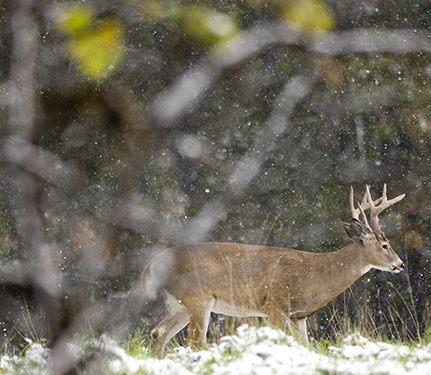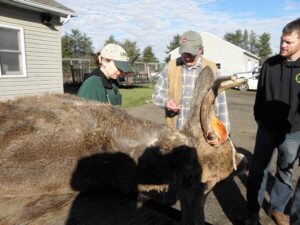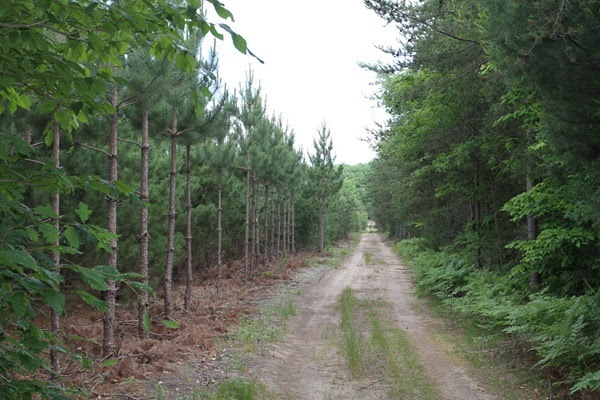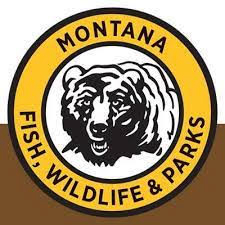Michigan: deer samples needed for bovine TB monitoring

If you’re hunting in the northeastern Lower Peninsula this firearm season, don’t forget to take your deer head to a DNR check station or drop box to be tested for bovine tuberculosis.
The DNR needs samples from Alcona, Alpena, Cheboygan, Crawford, Emmet, Iosco, Montmorency, Ogemaw, Oscoda, Otsego, Presque Isle and Roscommon counties. Surveillance goals for these counties help biologists understand the scale of bovine TB infection in the local deer herd.
“Sixty percent of deer that test positive for bovine tuberculosis show no signs of the disease, so testing is important,” said Emily Sewell, DNR wildlife health specialist.
Bovine TB is caused by the bacterium Mycobacterium bovis and, though typically occurring in cattle, it can infect nearly any mammal, including humans.
“It’s important that hunters take precautions like wearing latex or rubber gloves when field dressing their deer. If they notice any lesions on the lungs or in the chest cavity, they should avoid cutting into the lesions and bring the deer to a check station,” Sewell said.
As an added convenience, several self-service drop boxes are available 24 hours a day throughout the region. Hunters will need a smartphone to submit deer heads at these drop boxes.
Hunters anywhere in the state who discover chest lesions on deer carcasses should submit the deer for testing; it’s better if DNR biologists are able to examine the whole deer carcass. Hunters can either bring the deer to a check station or contact their local wildlife office for an appointment. Check station and drop box locations are available at Michigan.gov/DeerCheck.
Learn more about bovine tuberculosis at Michigan.gov/BovineTB. Hunters may check their deer or elk TB lab results at Michigan.gov/DNRLab.
Questions? Contact Emily Sewell at 231-340-1821.






